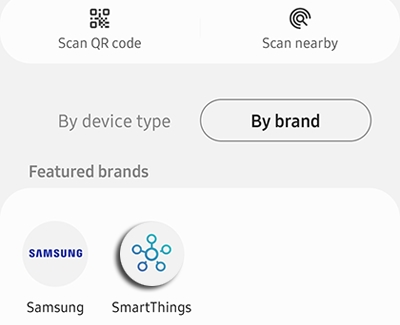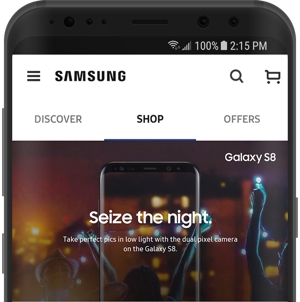
Cannot add the Smart Bulb to SmartThings

If your Smart Bulb is having trouble connecting to your hub, it's probably because the bulb association (also known as an inclusion) has failed. You will need to activate inclusion mode to add the bulb to your hub. However, it may be necessary to reset the bulb.
-
Set up the light bulb.
Make sure the bulb is within fifteen feet of your hub, and then screw the bulb into the socket of a lamp or light fixture.
-
Turn on the bulb.
Make sure to turn on the switch of the lamp or the light fixture to supply power to the bulb.
If your switch on the lamp or fixture is turned off, then the bulb and SmartThings app will not be able to communicate.
-
Activate inclusion mode on the hub using the SmartThings app.
Open the SmartThings app on your phone, and then tap the Home icon to navigate to the location where you'd like to add the bulb. Tap the Devices tab, tap Add (the plus sign), and then tap Add device.
Tap By brand, and then tap SmartThings. Tap Lighting, and then tap Smart Bulb to activate inclusion mode on your hub.

-
Connect the bulb to the Hub.
Tap Start, and then use the on-screen instructions to connect the bulb to the hub.
Usually, you will have to turn the light switch on and off multiple times. The bulb will flash if it has been successfully added into the hub.
-
Reset the bulb if it does not connect to the hub after repeated attempts.
If the bulb does not connect to the hub after repeated attempts, factory reset it to clear the bulb's settings.
Manually turn the lamp's or light fixture's switch on or off six times for intervals of 0.5 - 2 seconds. After the sixth time, the bulb will flash twice, indicating that it's successfully reset. You can now connect the bulb to your hub.
The SmartThings Smart Bulb is not recommended to use with a line voltage dimmer.
If you are using a third-party hub, Zigbee Controller, or Gateway, refer to the third-party's instructions on how to add a new device to your network.
Contact Samsung Support


